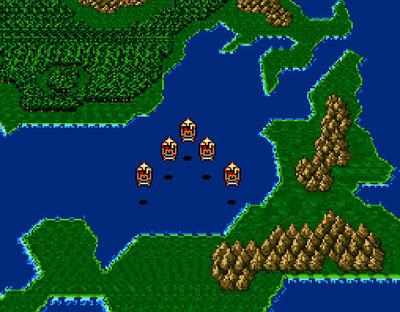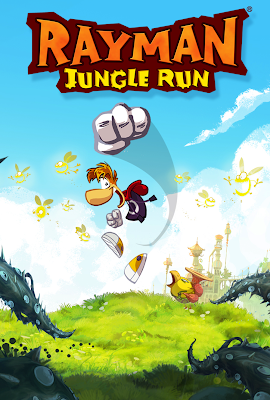"Games That Changed My Life" is a multi-part series on games of particular personal note in my own history. These games have incredible significance to me in one way or another, and I'll be explaining exactly why on each reoccurring episode.
Final Fantasy IV
RPGs are all over the place today. It seems like you can't shake a stick without hitting one, or at least games that incorporate what was once considered "RPG" (aka "Role-playing game") elements. Experience points make their way into Call of Duty, Halo, Puzzle Quest, and all sorts of genres. But it wasn't really that long ago when RPGs were considered somewhat "niche," and the rift between JRPGs and Western RPGs was that much more massive.
What does this have to do with my memories of Final Fantasy IV? Well...not much, but I needed some sort of intro to make me look reasonably intelligent.
 |
| Just roll with it, ok? |
I'll be frank here: I was probably the biggest terror ever to raise. Not because I was a bad kid or anything (I always tried to be good), but because I was a super hyperactive one. Say what you want about ADHD and how we overdiagnose, I was the poster child for that. Add that my two younger brothers were probably not the most darling little angels ever, and you have yourself a nice stressed mom and the inability to keep a consistant babysitter for more than two or three sessions. Think of us as Calvin and Hobbes, except there's three Calvins.
The only babysitter that I remember lasting multiple times was Carson (last name withheld to protect the innocent), and this was because he had a tactic. First, he was male (and we were all males) so that somehow made things easier. Second, he let us do anything we wanted until bedtime, then he didn't take any guff. And third, he snuck his Super Nintendo over quite regularly.
The incident in question began when my parents decided to take a day trip to L.A. Carson was the only one willing to deal with the trio of terror for that long of a period, so his skills were enlisted. On the way over he made probably the smartest decision he made that day: picked up a copy of Final Fantasy IV from the Video Rental store a few blocks from my house.
 |
| He got stuck on this boss for a while. Didn't know to just use Lit-3 and end it in one hit. |
As ADHD kids, we glued ourselves to video games. Hell, I still do (I'll admit it). We never had any systems growing up, so playing on an NES, Genesis, or SNES was a real treat. So when he came over with this new game for us, we were thoroughly engrossed.
I remember everything from that game. He played the game from the beginning all the way up to the point where Tellah died (then got stuck on Barbaricca, the Elemental Fiend of Wind) and we watched over the course of who knows how many hours.
Now, I'd played games before (I don't remember how old I was, but it couldn't have been above ten) on the computer, but nothing like this. Nothing that had a story to it. I remember my brother and I being elated when Palom and Parom were enlisted, and so mortified when they turned to stone to save Cecil and the crew that my brother literally cried and we had to turn the game off for a while to comfort him. Tellah's death was equally impactful, as he was one of our favorite characters because of his awesome magic spells and spiffy attire (or at least, that's why I assume we liked him so much).
 |
| Dance for me! |
This was the moment when I realized something. Video games aren't just toys. I'd cut my teeth on things like The Incredible Machine 2 and played truckloads of NES and Genesis games as friends' houses, but this was the first time a game was more than just a fun little interactive activity. It had a story, like a book. It had characters. It had emotion. It had memorable scenes (Tellah casting "Meteo" on Goblez was embedded in my mind for nearly seven years as I searched for this game after I'd forgotten the title. It wasn't until the advent of the internet in the late 90s that I actually rediscovered it). It has beautiful music on par with the classical stuff we were learning on the piano. It was more than a book could be, because it had images. It was more than a movie could be, because it was interactive. It was something wholly unique, a means to present story on a plane unlike anything we've ever seen.
Needless to say, it was impactful. We liked it so much we named a truckload of our Lego characters (we were way too big into Legos) after the characters, with the "Tellah Guy" being a mainstay who worked his way into all our of Lego adventures. When Carson got stuck on the three sisters boss for several hours (he couldn't figure out how "Wall" worked) we thought they were, in fact, the final boss of the game (I was relieved several years later when I replayed it and found the three sisters are cake). I remember Edward's girlfriend dying, and Tellah being furious. I remember the hovercraft (and even then I thought it was weird that this was in a medieval setting) and floating over water. I remember "Jump, Kain, Jump!" as Carson got stuck on Barbaricca for forever. And I remember Cid being my second favorite character, if only because of his huge hammer and love of airships.
 |
| Never Forget. |
For me, this was an impactful moment in my childhood and my gaming career. It introduced me to RPGs, a genre I would not rediscover until nearly half a decade later. It showed me story in games, with real emotional weight. It blew my young mind on so may levels that video games could be like this, something the industry (and those outside of it in particular) are still trying to comprehend even to this day. It's something I'll never forget.
 |
| Fly on, Red Wings |
Even as I replay the game today and realize it's...well, let's say "dated," to be nice...I can't help but be completely engrossed and wrapped up in nostalgia as I re-remember and rediscover things buried in my mind. Granted, that only lasts until after Tellah dies (though Carson did load another save on the rental copy that was on the Moon, which lead to mass confusion), but the music, the feel of the game; all of it is still there, buried deep in my brain. It's something special.
As a final, maybe not relevant anecdote, many years later when I went to college I had another weird Final Fantasy IV experience. This was around the time iTunes was starting to get big (2004ish) and they just introduced the network-sharing feature. Naturally, everybody on our dorm shared all their iTunes music so the whole building could see everybody's library. They could also see their playlists, including their "Top twenty-five most played" and playcounts.
The sound of my ruined college.
That's all for this time, but expect some more trips into Nathan's psyche and personal game history soon. Because that's what you always wanted: to get inside my brain. Yeah you did. Admit it.






















